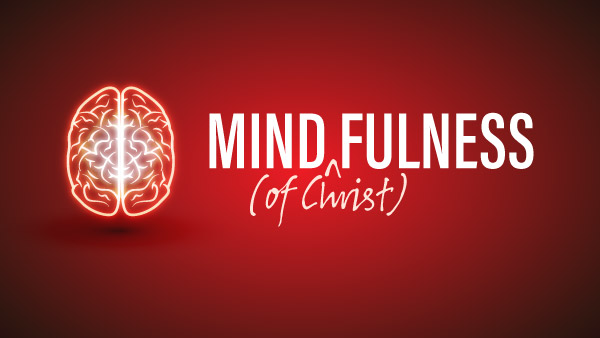
If you haven’t heard about mindfulness, you will. It’s a growing movement in both secular and spiritual circles.
Our pastor recently led our congregation in this technique as part of a guided meditation on The Lord’s Prayer. A few days later, a trainer led our faith-based university faculty in a mindfulness exercise to help us live in the moment in which God has placed us and to relate to the people he has put in our path.
So what is mindfulness?
According to Wikipedia, mindfulness is “a mental state achieved by focusing one's awareness on the present moment, while calmly acknowledging and accepting one's feelings, thoughts, and bodily sensations, used as a therapeutic technique.”
The goal of mindfulness is for the mind, body, and spirit to be fully present in the moment at hand. We don’t think about the past or the future. We shut out the chaos and distractions of everyday life. We simply listen to ourselves and “be.”
This all sounds good? Maybe. Maybe not.
The biblical Christian should not regard mindfulness as the goal or destination. Rather, meditation is an ancient spiritual discipline that’s referenced time and again in Scripture:
o The Benefit of Stillness:
In Psalm 46:10, the Lord instructs us to “Be still, and know that I am God; I will be exalted among the nations, I will be exalted in the earth.” When we cease striving, our hearts are postured for worship.
The goal of biblical meditation is not to experience the present moment but to experience God’s transcendent presence, character, and truth. We must be still to do this.
o The Blessing of Meditation:
In Psalm 1:2, King David says that God’s blessing comes to the person “...whose delight is in the law of the Lord, and who meditates on his law day and night.”
Contemporary Christians are beginning to reclaim the spiritual discipline of biblical meditation. It’s not just about being mindful; rather, it’s what--or rather, who--we fix our minds on that connects us with God’s truth and favor.
o The Emptying of Self:
John the Baptist had it right: “He [Jesus] must become greater; I must become less” (John 3:30). Our lives are full of selfishness and busy-ness. In order to be filled with Christ, we must open up space for his light and truth.
This emptying is intentional and costly. Notice the metaphor Jesus uses to describe the process: “...Whoever wants to be my disciple must deny themselves and take up their cross and follow me. For whoever wants to save their life will lose it, but whoever loses their life for me will find it" (Matthew 16:24-25).
o The Fullness of Christ:
In the New Testament, the apostle Paul answers the question posed by the prophet Isaiah: “‘Who has known the mind of the Lord so as to instruct him?’ But we have the mind of Christ” (1 Corinthians 2:16). We can know God’s mind because we have the mind of Christ. He has purchased us for the express purpose of filling us with the full measure of his character (Ephesians 4:13).
Having the mind of Christ allows us to trust the Lord with everything that comes our way: “...for I have always been mindful of your unfailing love and have lived in reliance on your faithfulness” (Psalm 26:3).
The Lord’s blessing doesn’t come by emptying our minds or getting more in touch with ourselves. Rather, we experience the “peace that surpasses understanding” when the Spirit of God indwells us, the power of God redeems us, and the mind of Christ renews us.
So I’d like to suggest a new term for believers who are hearing the timeless call to mediation:
MIND(of Christ)FULNESS.
In summary, it means...
o We quiet our minds and still our bodies to experience ourselves in God’s presence.
o We meditate upon God’s Word, which reveals his truth, character, and grace.
o We empty ourselves of what is not godly in confession and repentance in order to be filled with the full measure of Christ.
o We are transformed by the renewing of our minds in order to manifest God’s good, pleasing and perfect will (Romans 12:2).
MIND(ofChrist)FULNESS can be a wonderful discipline for spiritual development. Such stillness of heart prepares us to worship him in Spirit and truth.
--For other helpful blogs about personal spiritual development for worship leaders, go to DiscoverWorship.com.











